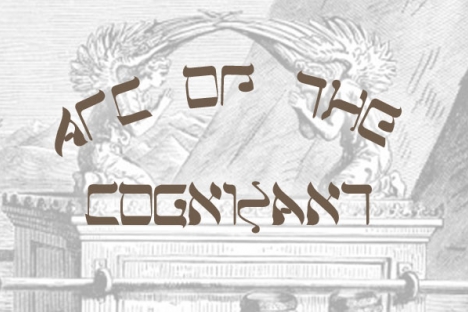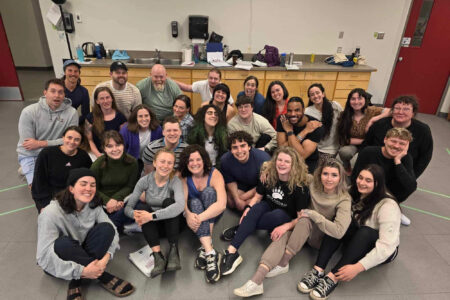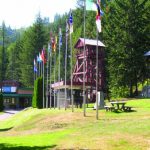COLUMN: Duality, choices, and truth (PART TWO)
War metaphors: Charles Eisenstein
Another very lengthy book on humanity’s love affair with dualism is by Charles Eisenstein, with whom regular readers of this column will be familiar, so often do I reference his work. I most especially appreciate his insistence that any time we allow ourselves to use war metaphors, of battle and combat and conquest, to stand in for a more nuanced understanding of human affairs, we harm the real complexity of politics and other matters of the human condition. The book I refer to here is The Ascent of Humanity, his extended analysis of how humans have become separated from our world, all the other beings and things in existence that we perceive as objects. The Story of Separation is his thesis.
I endorse Eisenstein whole-heartedly when he warns against militarist dualism, and we all know that our leaders love to speak of a “war against the coronavirus” now. If we just win the war, crush the enemy, then the challenge is overcome and the issues are all resolved, in a war metaphor; Victory is final and victors write the war’s history to prove the war was won.I quote him in his own words:
“Can you see how totalizing war mentality can be?
“War mentality saturates our polarized society, which envisions progress as a consequence of victory — victory over a virus, over the ignorant, over the left, over the right, over the psychopathic elites, over Donald Trump, over white supremacy, over the liberal elites…. Each side uses the same formula, and that formula requires an enemy. So, obligingly, we divide ourselves up into us and them, exhausting 99% of our energies in a fruitless tug-of-war, never once suspecting that the true evil power might be the formula itself. This is not to propose that we somehow banish conflict from human affairs. It is to question a mythology — embraced by both sides — that conceives every problem in conflict’s terms. Struggle and conflict have their place, but other plotlines are possible. There are other pathways to healing and to justice.” — from his essay, The Coronation
But the deepest issue of epidemics is not resolved when we can manage Covid-19. We still have viruses ahead. Do we only intend to fight wars, not prevent them? Are there no ecological lessons in the pandemic about how to live on earth in healthy ways? The weapons of science are so often reactive, not preventive. Eisenstein’s passionate purpose is to tell us, “Humans are not gods, not in control”, and we in fact have to change ourselves, systems, economies, politics, ideologies, if we are serious about avoiding epidemics.
[Here’s a half-hour podcast on the subject of epidemics and war metaphors:
https://soundcloud.com/charleseisenstein/the-war-on-germs]
A virus has no human feelings, but the world outside humans has to be understood, not just so we can control it to our ends, but to allow it its existence in an ecology where human beings are not the arbiters of all other “objects.” I say again, we are not gods. Subject/object dualism is wrong because it encourages a perverted mental attitude that puts humans above all other living beings. Our “right” to colonize other planets and their biomes is unquestioned, taken as given, even as a destiny, by men like Elon Musk – and that should trigger all kinds of unease in a thinking human.
[Read Eisenstein’s entire essay on the pandemic here https://charleseisenstein.org/essays/the-coronation/
Politics and Duality
Trying to overcome dualistic mind does not mean making untenable compromise between fact and fiction. But trying to understand why your “opponent” has a different point of view is never wrong. Eisenstein is correct to lay heavy emphasis on this question — “What does it feel like to be you?” One should ask this in any situation of polarized political argument.
In politics, Eisenstein rightly says, one side never has all truth and its victory is not the end of conflict; we must learn how to feel the feelings of the “enemy” rather than crush them in defeat and hope they never rise again. Politics has no final end. “What does it feel like to be you?” is the question political enemies avoid asking each other, and until we do, there will be no end to war, revolution, civil strife, tyranny.
In politics, there should never be final victories of only one political program, since by their nature politics do not provide absolute truths, but only partial, contingent, human ones. This is not to say that human rights are merely politics, for they are not. A right is not established by politics, it simply exists or not. Law can refuse to recognize a right, but not that it is real. However, rights too are not free from the problems of duality: some can be supported by evidence, others are moral rights.
[A thorough exploration of this problem of rights and duality in politics is found in a book by Adam Gopnik, a theorist of modern liberalism.
https://systemopedia.org/blog-1/2019/9/24/adam-gopnik-liberalism-the-left-and-the-right
https://www.nytimes.com/2019/05/14/books/review/adam-gopnik-thousand-small-sanities.html]
Solipsist disaster: “I alone decide what is truth”
Ultimately, I do not want to leave readers with the impression that you are free to believe whatever either/or you choose, and you can make up your own mind whom to trust in science, medicine, or any other field of human study and scholarship.
You are not the arbiter of Truth and you must defer in judgement to others who do indeed possess more education, or credentials, or experience, that qualify them to speak with expertise, and deserve respect. I want my own very small claim, to know a certain something about history, to be respected, and my information about historical events or people, when offered, to be received as possessing some validity due to my studies. Intellectual labour is work. I respect work, yours and mine.
The assertion that “my” truth and “your” truth are equally valid when only one of us has credible evidence to prove our truth, is a false idea. But it seems to be winning a culture war in modern or postmodern societies.
A fine study of the American version of this anti-truth phenomenon is the book by Kurt Andersen, Fantasyland, How America lost its Mind.
[ seehttps://en.wikipedia.org/wiki/Fantasyland:_How_America_Went_Haywire
and
https://www.theatlantic.com/magazine/archive/2017/09/how-america-lost-its-mind/534231/]
Personal remarks I cannot avoid
I made one outstanding decision in my life in full consciousness of attempting to change my living by choosing a new home, Nelson. I wrote myself a poem which included the line “escape grey arid Reason’s haze, embrace green misty love…” I was leaving the academic environment of postgraduate history degree-pursuit, in a metropolis and finding new soil wherein to root my existence. I chose fortunately; I do not claim wisdom, but it did indeed re-make my life, mostly by far for the better.
I began this essay with an intention to persuade readers to a method for how dualistic thinking might be transcended. I do not feel I made the case. I have only indicated that I personally would experience such a transcendence as positive for myself. To say more about that would be to involve myself in a metaphysical debate about the nature of how “reality” operates. Meta-physics is a study the physicists (and Marxists) I have known scorn because it is immaterial, the great sin of nonsense to a materialist mind. Going further into it would not serve any of my purposes. I have never intended here to declare an allegiance to a side.
I have chosen not to try any explanation of why I think the cosmos is not subject to an entire understanding by human consciousness. It is my “conviction” that our human-species limitations place a boundary on what we can capably claim to “know.” It does not pass my test of probability that the consciousness of this species that has evolved on one planet in a vast cosmos, has been put together in such a way it can comprehend all of it.
In other words, I am a Darwinian on the subject of my species, and do not think “God gave humans a mind” in His image, not a mind like His is described in theology, a consciousness of all that is, omniscient and omnicompetent… And, there, I have just declared one allegiance at least in a current debate between Christian religion and biological science.
Conclusions: forks in the road, remorse, peace of mind, living well
There really is such a thing as truth. Funny phrase, to say truth is a thing, but that is our language. [res, is Latin for thing, hence our words reality and realm]. Truth has existence independent of human consciousness.
And so logically there are un-truths. It is not positive for optimal human living, for one to simply believe what one chooses, if one chooses to believe things that are not true. That is a duality built into the constitution of the cosmos. The God I have investigated in theology would not intend this to be.
The decisions we have made in life, conscious or not, to align ourselves with a certain perspective and attitude, will not change the physical cosmos. But they will most certainly determine degrees of comfort you will experience in the human world you must inhabit. You do indeed “create a reality” where your relationships with other people are involved, and that is an enormous proportion of what one’s life is.
There are many things in life that are uncontrolled. Call it the impenetrable wheel of fortune; I do. You are not responsible for all that happens to you, but there is a fraction you most surely must own. Wisdom is knowing which is which, in my opinion. The wisdom of knowing the difference, as the prayer has it.
I also intended in this essay to speak to the felt consequence of the choices we make. Not all choices turn out well. Not all regret is vain. Our choices really do make a difference to us, and to others. My choice to make Nelson my home is such a one.
Remorse for a choice with unintended negative consequence is absolutely appropriate in our human condition, and regret is not to be condemned. We cannot undo, but we can make amends and ask forgiveness.
Finally, on the question of being at peace — with where we turned at the forks in our life’s road — to be not full of regret nor tortured by what-might-have-been, I offer the words of poets.
“Sometimes words have two meanings…
… all our thoughts are misgiven…
There are two paths that you can go by, but in the long run, there’s still time to change the road you’re on.” Robert Plant,Stairway to Heaven
Plant is an optimist, to believe one can always change your path. I know that is not the lived experience of many.
The Road not Taken
Two roads diverged in a yellow wood,
And sorry I could not travel both
And be one traveler, long I stood
And looked down one as far as I could
To where it bent in the undergrowth;
Then took the other, as just as fair,
And having perhaps the better claim,
Because it was grassy and wanted wear;
Though as for that the passing there
Had worn them really about the same,
And both that morning equally lay
In leaves no step had trodden black.
Oh, I kept the first for another day!
Yet knowing how way leads on to way,
I doubted if I should ever come back.
I shall be telling this with a sigh
Somewhere ages and ages hence:
Two roads diverged in a wood, and I—
I took the one less traveled by,
And that has made all the difference.
— Robert Frost
Yes. There are choices that make a world of difference. And you can’t return to the fork and set the world back as if you never made the turn.
























